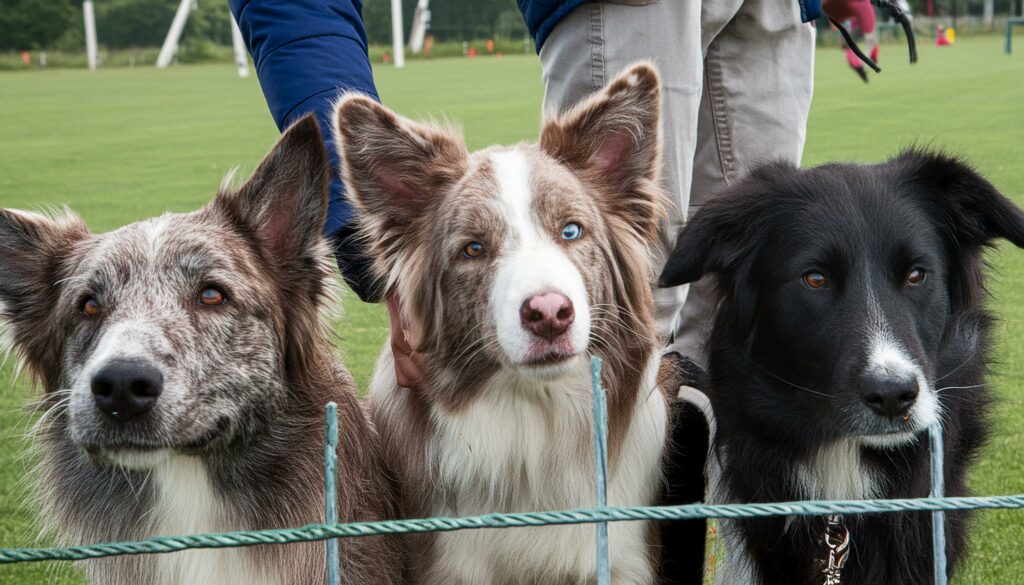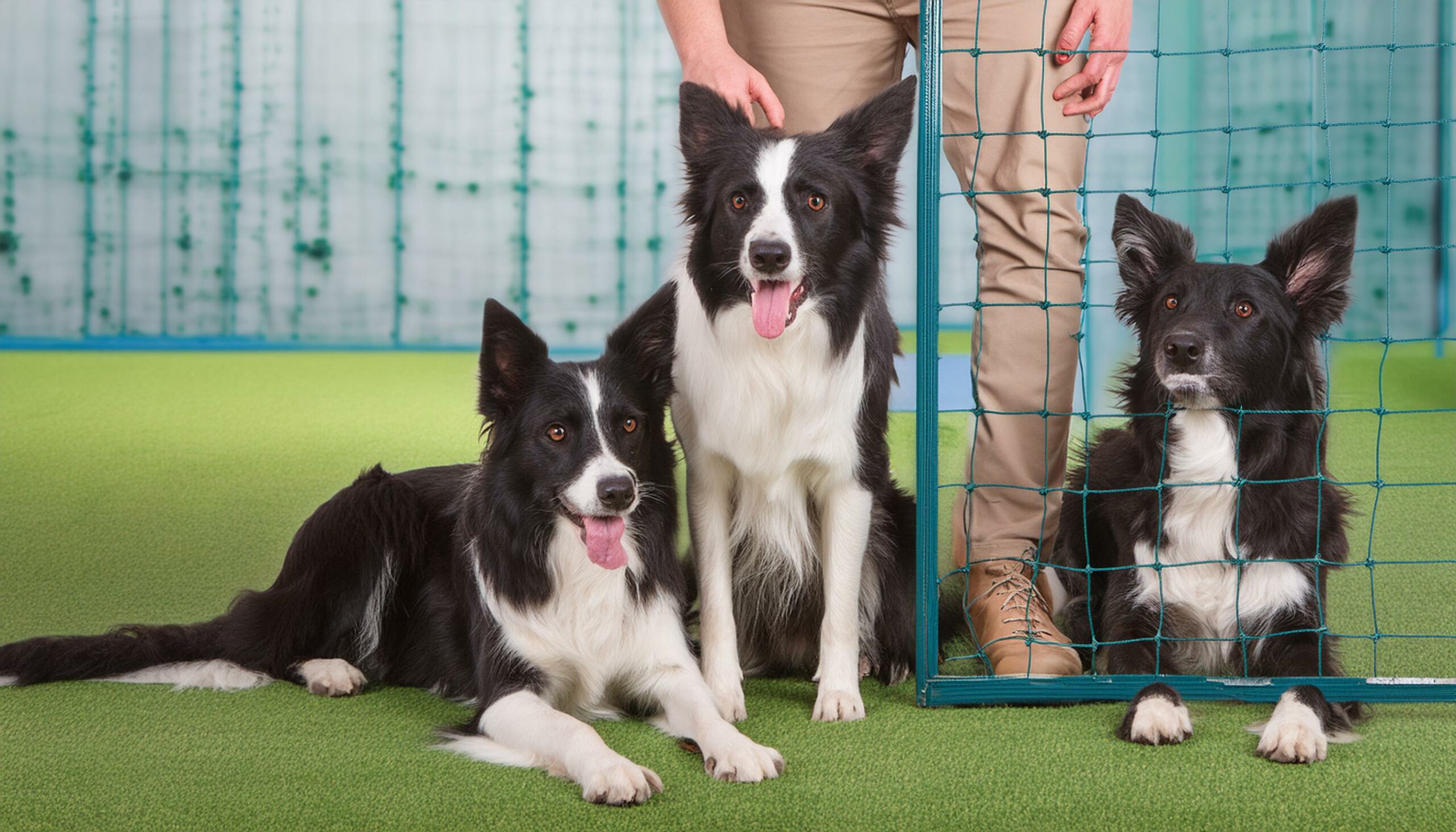Border Collies, known for their intelligence and agility, have long been prized as herding dogs. But can they also serve as protectors? In this article, we’ll delve into the intricacies of Border Collies’ instincts, training possibilities, and limitations when it comes to protection.
Understanding Border Collies
History and Background of the Breed
Originating from the border regions of Scotland and England, Border Collies were bred for their exceptional herding abilities. Their keen intelligence and boundless energy have made them indispensable on farms and ranches worldwide.
Unique Traits and Characteristics
Border Collies stand out for their intense gaze, remarkable intelligence, and unwavering loyalty. They possess an innate drive to work and excel in various tasks, from herding livestock to competing in dog sports.
Intelligence and Trainability
Widely regarded as one of the smartest dog breeds, Border Collies are quick learners with a strong desire to please their owners. Their high trainability makes them versatile companions capable of mastering complex tasks.
Instincts and Herding Behavior
Natural Instincts of Border Collies
Border Collies inherit strong herding instincts from their ancestors. These instincts drive their behavior, leading them to exhibit traits such as chasing, circling, and nipping at the heels of animals.
Herding Behavior and its Implications for Protection
While herding instincts are deeply ingrained in Border Collies, their application in protection scenarios may vary. Their tendency to control movement and maintain order can influence how they respond to perceived threats.
Guarding Instincts vs. Herding Instincts
Differentiating Between Guarding and Herding Instincts
Guarding and herding are distinct behaviors, each serving different purposes. While Border Collies excel in herding, their suitability for guarding roles depends on various factors, including temperament and training.
Can Border Collies Be Trained to Protect?
Training plays a crucial role in shaping a Border Collie’s behavior. While they may not possess the same innate guarding instincts as breeds specifically bred for protection, Border Collies can be trained to exhibit protective behaviors with patience and consistency.
Factors Affecting Protective Behavior
Socialization and Upbringing
Early socialization and positive experiences are essential for shaping a Border Collie’s temperament and behavior towards strangers and potential threats. Exposing them to various environments and people helps instill confidence and adaptability.
Environment and Training Methods
The environment in which a Border Collie is raised, coupled with the training methods employed, significantly impact their protective instincts and capabilities. Positive reinforcement techniques and consistency are key to fostering desired behaviors.
Individual Temperament Variations
Like humans, each Border Collie has its own unique temperament. While some may naturally exhibit more protective tendencies, others may be more reserved or aloof. Understanding and respecting these individual differences is crucial in training and management.
Potential as Watchdogs
Alertness and Vigilance
Border Collies are known for their keen senses and alert demeanor. Their watchful nature and acute awareness of their surroundings make them effective watchdogs capable of detecting potential threats.
Ability to Detect Intruders
Their sharp instincts and quick reactions enable Border Collies to detect intruders and alert their owners to potential dangers. While they may not confront threats directly, their role as early warning systems can be invaluable in protecting their home and family.
Physical Attributes

Size and Strength Considerations
While Border Collies may not possess the imposing stature of larger guardian breeds, their agility and speed can be advantageous in certain protection scenarios. Their ability to maneuver quickly and navigate obstacles allows them to outmaneuver potential threats.
Agility and Speed
Border Collies are renowned for their agility and speed, traits that make them well-suited for tasks requiring quick reflexes and decisive actions. Their ability to cover ground swiftly can aid in apprehending intruders or deterring them through their presence alone.
Training for Protection
Techniques for Teaching Protective Behaviors
Proper training is essential in developing a Border Collie’s protective instincts. Positive reinforcement methods, such as rewarding desired behaviors with treats or praise, help reinforce the desired response to potential threats.
Importance of Professional Guidance
Seeking guidance from experienced trainers can provide valuable insights and ensure that the training process is conducted effectively and safely. Professional trainers can tailor training programs to suit individual dogs’ needs and address any behavior issues that may arise.
Real-Life Examples
Anecdotes or Case Studies
Numerous anecdotes and case studies highlight Border Collies’ protective instincts in real-life situations. Whether it’s alerting their owners to intruders or standing guard over their home, Border Collies have demonstrated their ability to fulfill protective roles effectively.
Success Stories and Challenges Faced
While many Border Collies have successfully served as protectors, challenges such as temperament issues and training requirements must be addressed. Not all Border Collies may possess the temperament or inclination for protection work, and careful consideration should be given before entrusting them with such responsibilities.
Limitations as Guardians
Temperamental Considerations
Some Border Collies may exhibit timid or anxious behavior, making them less suitable for protection roles. Aggression issues must also be addressed carefully, as improper handling can pose risks to both the dog and its human companions.
Handling of Aggression Issues
Addressing aggression issues requires patience, consistency, and professional intervention when necessary. Aggression can stem from fear, insecurity, or territoriality, and understanding the underlying causes is essential in developing a safe and effective management plan.
Other Breeds More Suited for Protection
While Border Collies can be trained to protect, there are breeds specifically bred for guarding purposes that may offer more predictable behavior in such roles. Breeds like German Shepherds and Rottweilers possess innate guarding instincts and physical attributes that make them well-suited for protection work.
Balancing Protection with Other Traits
Maintaining the Breed’s Natural Instincts
While training for protection, it’s crucial to preserve the Border Collie’s innate qualities, such as their intelligence and sociability. Overemphasis on protection may compromise these traits and detract from the breed’s overall well-being.
Ensuring a Well-Rounded and Happy Dog
Border Collies thrive on mental and physical stimulation, and protection work should be integrated into a balanced lifestyle that includes plenty of opportunities for play, exercise, and socialization. A happy and fulfilled Border Collie is more likely to excel in all aspects of its life, including protection.
Alternative Roles for Border Collies
Service and Therapy Work
Beyond protection, Border Collies excel in various roles, including service and therapy work. Their intelligence, empathy, and gentle demeanor make them ideal companions for people in need of assistance or emotional support.
Sports and Competitions
Engaging in sports and competitions not only provides Border Collies with mental and physical stimulation but also strengthens the bond between them and their owners. Activities like agility, obedience, and herding trials allow Border Collies to showcase their skills and talents in a fun and challenging environment.
Personal Experiences
Testimonials from Border Collie Owners
Many Border Collie owners attest to their dogs’ protective instincts and unwavering loyalty. Whether it’s standing guard over the family home or providing comfort in times of distress, Border Collies have a knack for sensing and responding to their owners’ needs.
Insights into Their Protective Behaviors
Observations of Border Collies in action offer valuable insights into how they approach and respond to potential threats. While their methods may vary, their dedication to their owners’ safety and well-being is unwavering, reaffirming their status as cherished family members and protectors.
Conclusion
In conclusion, while Border Collies may not be traditional guard dogs, their intelligence, agility, and loyalty make them capable protectors in certain contexts. With proper training, socialization, and understanding of their instincts, Border Collies can fulfill protective roles while maintaining their inherent qualities as loving companions.
FAQs
Are Border Collies Good Guard Dogs?
Border Collies can be trained to be effective guard dogs, but they may not possess the same natural guarding instincts as breeds specifically bred for protection.
Can Border Collies Be Aggressive Towards Strangers?
Border Collies typically exhibit friendly and sociable behavior towards strangers, but individual temperament and socialization play significant roles in their interactions.
How Can I Train My Border Collie to Be Protective?
Training methods focusing on positive reinforcement and consistency can help develop a Border Collie’s protective instincts, but professional guidance may be necessary for optimal results.
Are There Any Specific Breeds Better Suited for Protection?
Breeds such as German Shepherds and Rottweilers are often preferred for traditional protection roles due to their size, strength, and inherent guarding instincts.
What Should I Consider Before Relying on My Border Collie for Protection?
Consider your Border Collie’s temperament, training, and environment, and recognize that while they can be trained to protect, they may not offer the same level of predictability as breeds specifically bred for guarding.
